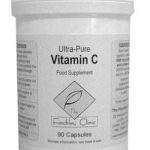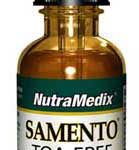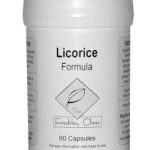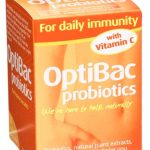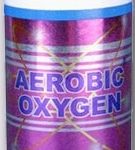It’s something that automatically causes dread in people this time of year – a tickle in or at the back of the throat. The reason? Because, in so many cases, it tends to indicate an oncoming sore throat. Granted, on its own a sore throat’s usually a minor complaint, but too often it’s also a gateway to something that truly has to be endured (a cold, the flu or another type of viral infection), forcing many people to try and battle through work during the cold, dark days of winter while they feel unwell. So what can you do to treat a sore throat – and can you prevent yourself from ever getting one in the first place? Good question…
Causes and symptoms
The causes of a sore throat are many and various. In the vast majority of cases in both adults and children (as many as 95%), the reason for one developing is because of the onset of a virus like the common cold or influenza (the flu)1. Less often but occasionally, a sore throat may be caused by the likes of allergies, dry air, pollution, smoking, tonsillitis or acid reflux 2, 3.
As pointed out then, a sore throat is, of course, a symptom itself, yet owing to the fact some can be more severe than others, it can practically feel like they’re made up of their own various symptoms. For instance, you may merely experience a tickling soreness and a hoarse voice or you might have swollen glands around your throat and neck and find swallowing painful and difficult1. Moreover, you may be suffering from other symptoms in addition to a sore throat, such as congestion, a headache, a runny nose, a fever and even abdominal pain or vomiting. Obviously if you feel your sore throat’s part of something serious, you should consult a doctor – in fact, it’s advisable to do so if it alone lasts more than a week.
Natural remedies
There are several natural sore throat remedies you can turn to:
- Drink warm beverages – they can moisten and make comfortable an inflamed, painful throat; ordinary tea is an obvious choice here but healthy green or oolong tea are excellent options too
- Gargle salt water or try garlic – gargling warm water with half a teaspoon of salt is great for quick relief from throat pain4, or how about trying the fantastic health-giving properties of this odourless, aftertaste-free garlic?
- Honey and black seed oil – research suggests that honey can provide relief to children’s coughs5; just a teaspoon in a drink or on its own will suffice each time and you might add to it two or three drops of black (cumin) seed oil, as it’s anti-inflammatory so ought to further aid pain relief6, 7
- Herbal tea – owing to their antiviral properties, teas that feature as their main ingredients cat’s claw, damiana, graviola and lapacho can all aid throat-soothing
- Essential oils – inhaling the vapours of myrrh8 and eucalyptus are recommended for a sore throat, as is gargling with the former; while applying two drops of Lavandula angustifolia (lavender oil) to the back of the tongue may also prove effective
- Spices – both turmeric and ginger have been recognised for centuries for their therapeutic aspects9; as such, ginger is thought to alleviate sore throat pain, while turmeric contains the soothing component that’s curcumin (see many of the products we stock that contain turmeric and curcumin here)10.
Prevention
Finding natural resources for relief to a sore throat’s all well and good, but what about preventing one from developing in the first place? Well, you might try to limit your exposure to people whom seem to be ill and could give you one, but this isn’t always particularly practical. However, making sure to wash your hands regularly and avoiding smoking and second-hand smoke are easier achievable aims that’ll cut the likelihood of a sore throat.
Meanwhile, a failsafe way to reduce the chances of catching a cold, the flu or putting yourself at risk from sore throat-causing viruses and infections is to try and boost your body’s immunity. To that end, introducing into your diet cruciferous vegetables (such as broccoli, bok choy and cauliflower)11 and carotenoid-rich tomatoes12 comes highly advised.
Supplements
That said; it ought to be pointed out that some people have dietary constraints, so it may be best for them to boost the infection-combating Vitamins B and C in their bodies – as well as improving or maintaining their immunity – via vitamin supplements. The following are all advisable and available through us at The Finchley Clinic:
Aerobic O7 (70ml) – nascent oxygen, when taken as Aerobic O7, prompts the formation of white blood cells, which are critical in helping the body fight infections.
Tapioca Vitamin C (90 capsules) – contains the immune-building and infection-fighting Vitamin C.
Echinacea Cold Flu Relief (capsules) – a traditional herbal medicinal product used to relieve symptoms of the common cold and flu-type infections; can be used in combination with our Liquid Oxygen products (including Aerobic O7) and others.
References
1. Worrall G. J. ‘Acute Sore Throat’. Canadian Family Physician 53.11 (2007): n.pag.
2. CDC. ‘Sore throat’. Centers for Disease Control. CDC. 23 July 2015.
3. ‘Sore throat’. Medline Plus. National Library of Medicine. 21 Oct 2016.
4. ‘Strep throat’. Medline Plus. 2 Dec 2016.
5. Paul I. M. et al. ‘Effect of Honey, Dextromethorphan and No Treatment on Nocturnal Cough and Sleep Quality for Coughing Children and Their Parents’. Archives of pediatrics & adolescent medicine. 161.12 (2007): 1140–6.
6. Ali B. H. and Blunden G. ‘Pharmacological and Toxicological Properties of Nigella Sativa’. Phytotherapy Research 17.4 (2003): 299–305.
7. Padhye S., Banerjee S., Ahmad A., Mohammad R. and Sarkar F. H. ‘From Here to Eternity – the Secret of Pharaohs: Therapeutic Potential of Black Cumin Seeds and Beyond’. 6.b (n.d.) (2008): 495–510.
8. El Ashry E. S. H., Rashed N., Salama O. M. and Saleh A. ‘Components, therapeutic value and uses of myrrh’. Die Pharmazie – An International Journal of Pharmaceutical Sciences. Avoxa – Mediengruppe Deutscher Apotheker GmbH, 1 Mar. 2003.
9. Baliga M. S., Haniadka R., Pereira M. M., D’Souza J. J., Pallaty P. L., Bhat H. P. and Popuri S. ‘Update on the Chemopreventive Effects of Ginger and Its Phytochemicals’. Critical reviews in food science and nutrition. 51.6 (2011): 499–523.
10. Lim T. K. ‘Edible Medicinal and Non-Medicinal Plants: Volume 12 Modified Stems, Roots’. N.p.: Springer. 2016.
11. Veldhoen M. and Brucklacher-Waldert V. ‘Dietary Influences on Intestinal Immunity’. Nature reviews. Immunology. 12.10 (2012): 696–708.
12. Watzl B., Bub A., Brandstetter B. R. and Rechkemmer G. ‘Modulation of Human T-Lymphocyte Functions by the Consumption of Carotenoid-Rich Vegetables | British Journal of Nutrition | Cambridge Core’. British Journal of Nutrition 82.5 (1999): 383–389.

